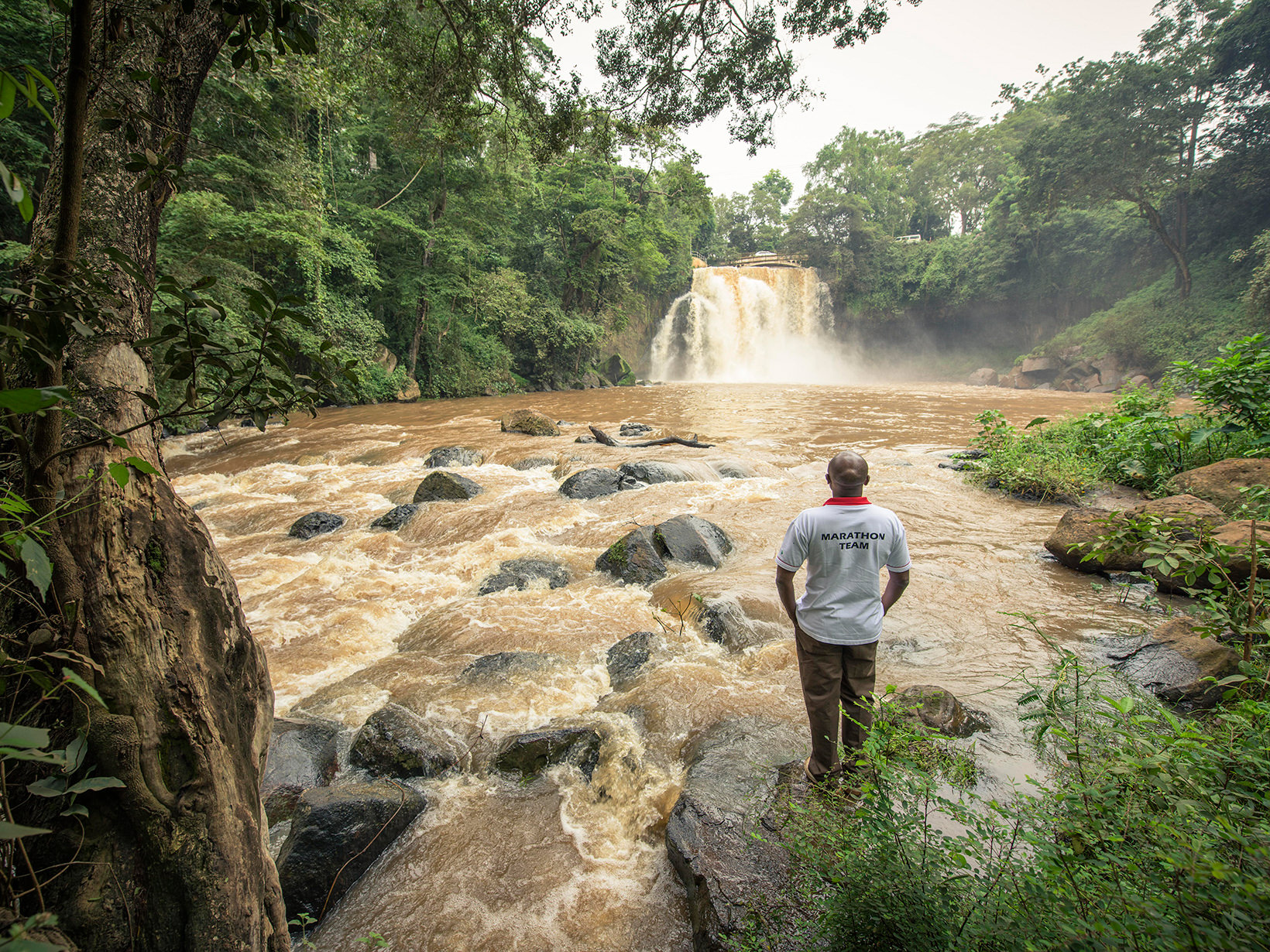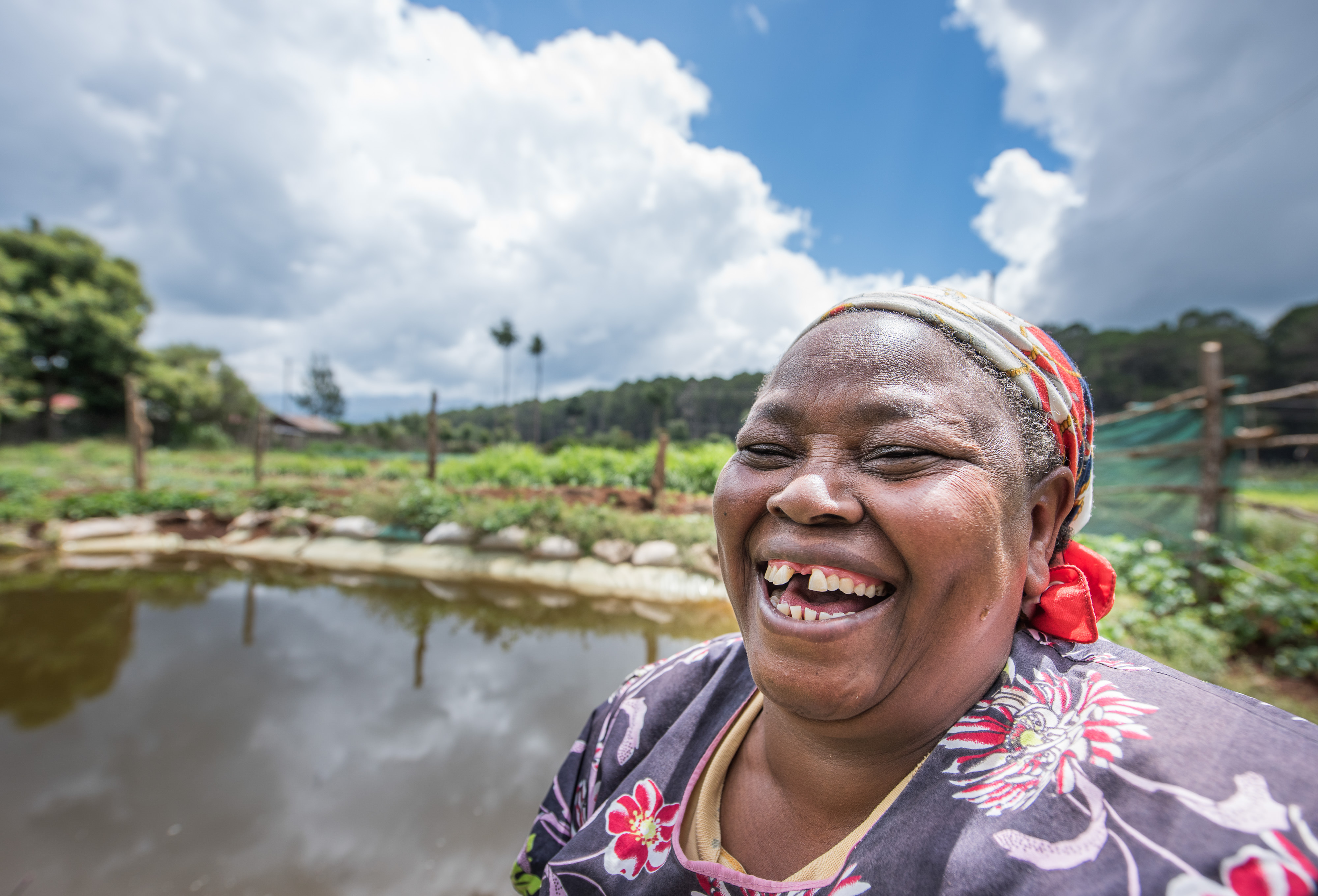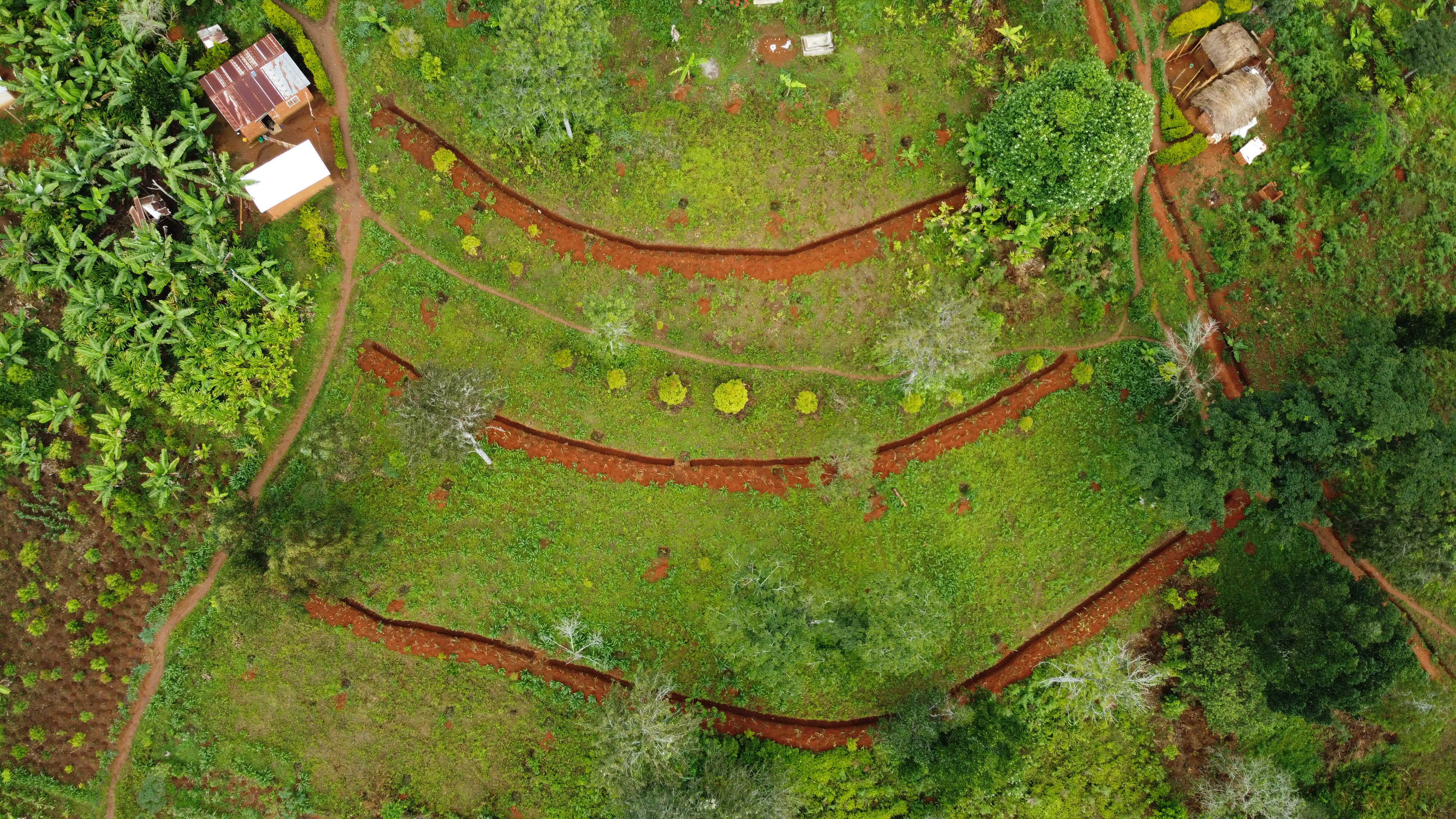The Tana River supplies 95% of the water for Nairobi’s 4 million residents, and for another 5 million people living in the watershed. It also feeds one of the country’s most important agricultural areas and provides half of the country’s hydropower output. With Nairobi contributing 60% of the country’s GDP, the Tana River truly fuels Kenya’s economic growth.
Since the 1970s, forests on steep hillsides and areas of wetlands have been converted to agriculture, removing natural areas for storing runoff water and soil from the land. Now, as rain falls over farms, soils are washed down into the river, which reduces the productivity of farmland and sends sediment into the rivers. This increased sedimentation can choke water treatment and distribution facilities causing complete service disruptions for days or weeks at a time. Today, 60% of Nairobi’s residents do not have access to a reliable water supply.
This growing challenge requires something innovative to protect the Tana River, increase downstream water quality and quantity and provide positive benefits for tens of thousands of farmers in the watershed. In 2015, TNC launched the Upper Tana-Nairobi Water Fund (UTNWF) to help secure the source of water for Nairobi.
Water funds are founded on the principle that it is cheaper to prevent water problems at the source than it is to address them further downstream. Public and private donors and major water consumers downstream contribute to the Fund to support upstream water and soil conservation measures, resulting in improved water quality and supply.
Reaching Maturity
September 1, 2021, marked a major milestone for UTNWF’s evolution: It officially became an independent Kenyan-registered entity. The UTNWF has outgrown its roots since its inception in 2015 and is now managed by local leadership, rather than as a program within TNC. The UTNWF is working with tens of thousands of farming households throughout the watershed to reduce erosion and ensure more clean water flows to industries and homes for 9 million people both upstream and downstream.
The Water Funds builds on TNC's experience addressing similar issues in Latin America, where more than 30 water funds are either underway or in development. The UTNWF was the first of its kind in Africa, and now serves as a model as leaders across the continent looking for innovative ways to solve ever-increasing water challenges. With its new independent status, the UTNWF will also showcase how to scale-up water funds across the globe to their maturity and thus provide solutions to build resilient watersheds.

Sign up for Nature News
Get monthly conservation news and updates from Africa.
The Importance of Farmers
There are 300,000 very small farms on the steep slopes in the Upper Tana watershed. Land scarcity and declines in soil productivity drives farmers to expand cultivation into steeper and steeper slopes and riparian catchments. Working with these farmers—starting with those in the steepest and most critical areas—is imperative to reducing the many impacts that are caused by deforestation and this massive sediment runoff.
Together with our Water Fund partners, we have provided more than 44,000 farmers with the training, resources, and equipment they need to help keep the river healthy, conserve water, and reap the benefits of higher crop yields and more stable farms.
Quote: Mercy Wangechi

Last season I planted a variety of tomatoes, and people were coming from all different locations just to see them. With the profits I made I bought a car, which is helping me and my husband take tomatoes directly to market.
The Next Chapter
By the time the Upper Tana-Nairobi Water Fund became an independent entity in September 2021, it had already made a significant impact in Kenya. Highlights include:
- 73,000 hectares of land in the watershed under improved, more sustainable management, including 36,000 hectares of public forests.
- 3.6 million trees planted, which will lead to sequestering over 5 tons of carbon per hectare over the next 30 years.
- 8,500 farms certified by the Rainforest Alliance, thus increasing the market value of harvested coffee and improving yields per coffee tree each year.
- Special subsidies for conservation inputs given to women and the elderly in the communities, many of whom are now engaged in land management interventions that will improve food production, like rainwater harvesting and other labor-saving technologies such as drip irrigation for efficient water application.
- Three large communal water pans with a total capacity of 43.5 million liters were rehabilitated and are currently benefiting 4,200 households with water for domestic use, irrigation, and watering their livestock in specially designed troughs.
- Estimates that the actions of this water fund will result in up to $3 million USD per year in increased agricultural yields for smallholders and agricultural producers.
TNC is proud of the success of the UTNWF and look forward to its role in inpsiring more water funds in Kenya and throughout Africa.



